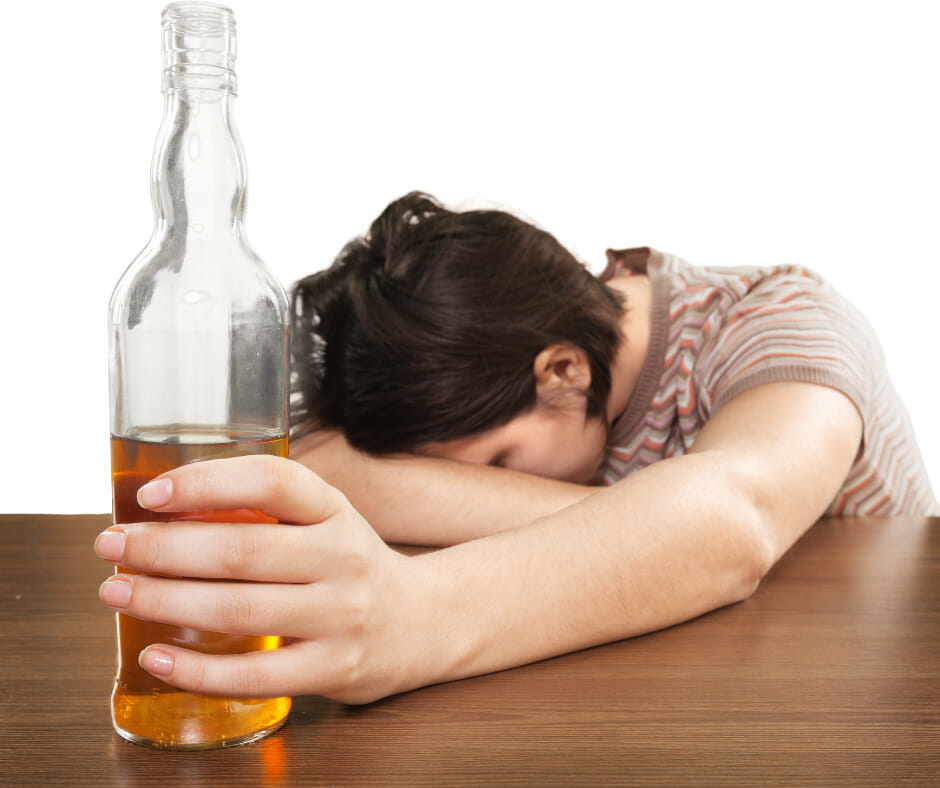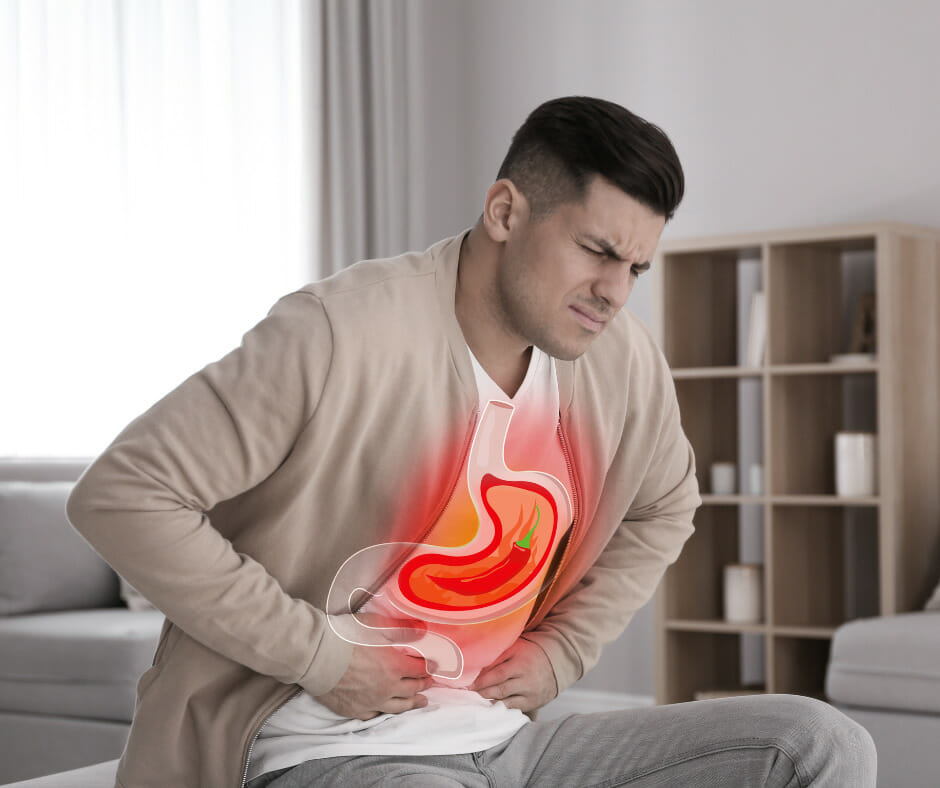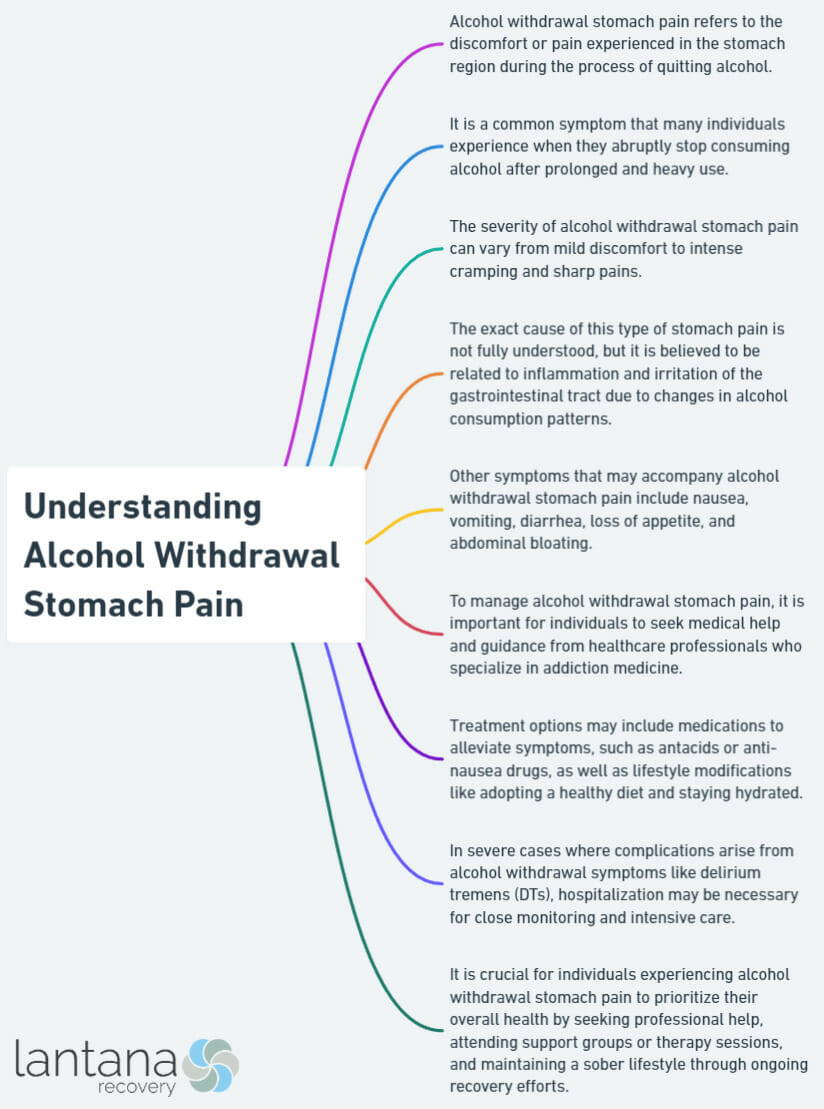When John began his journey to sobriety, he knew it wouldn’t be easy, but he didn’t expect the stomach pain that would accompany his alcohol withdrawal. As it turns out, John’s experience is far from unique. Alcohol withdrawal stomach pain is a common issue faced by many on their path to recovery. In this blog post, we will explore the reasons behind this discomfort, offer guidance on how to manage it, and discuss the importance of seeking professional help for alcohol withdrawal.
Key Takeaways
- Alcohol withdrawal syndrome can cause stomach pain and other gastrointestinal issues.
- Seeking medical attention is essential for managing alcohol withdrawal symptoms, such as tremors, sweating, nausea and anxiety.
- Support resources are necessary for successful recovery from alcohol addiction.
Alcohol Withdrawal Symptoms and Stomach Pain

Alcohol withdrawal symptoms can range from mild to severe, with some individuals experiencing hallucinations, seizures, and even delirium symptoms. Among these symptoms, stomach pain is a common occurrence, making the detoxification process even more challenging. Nausea, abdominal pain, and cramping are some of the gastrointestinal distress symptoms associated with alcohol withdrawal.
Stomach pain during alcohol withdrawal can be a cause for concern as it may indicate underlying issues such as:
- infections
- ulcers
- acute gastritis
- bleeding
- alcohol-related diseases like cirrhosis of the liver
These symptoms of alcohol withdrawal, which can be considered severe withdrawal symptoms, are part of a larger condition known as alcohol withdrawal syndrome.
Exploring the causes, severity, and duration of stomach pain during alcohol withdrawal can enhance our understanding and management of this discomfort.
Causes of Stomach Pain in Alcohol Withdrawal
During alcohol withdrawal, the following symptoms may occur:
- Stomach pain
- Nausea
- Vomiting
- Increased acid production
These symptoms may be caused by the sudden decrease in alcohol intake, anxiety during alcohol withdrawal, and can potentially lead to the development of stomach ulcers.
Alcohol withdrawal stomach pain can also be influenced by an individual’s alcohol use disorder and history of alcohol consumption. No cure exists for withdrawal symptoms from alcohol intake, making medical assistance imperative for proper symptom management and a safe recovery process.
Severity and Duration of Stomach Pain
The severity and duration of stomach pain in alcohol withdrawal can vary from person to person. While the duration of alcohol withdrawal symptoms can differ between individuals, the duration of gastrointestinal distress during alcohol withdrawal is contingent upon individual circumstances. Stomach pain in alcohol withdrawal can vary from mild to severe. It can range from minor discomfort to more intense agony.
Should you experience severe stomach pain during alcohol withdrawal, seeking medical attention becomes imperative. In some instances, stomach pain might persist after other withdrawal symptoms have subsided.
Monitor your progress and seek medical advice if discomfort persists or new symptoms emerge.
The Connection Between Alcoholism and Gastrointestinal Issues

Alcoholism has been linked to a range of gastrointestinal issues, including alcoholic gastritis and other digestive system complications. Alcohol can irritate the stomach lining, increase acid production, and relax the muscles in the esophagus, leading to a variety of digestive problems.
Long-term alcohol abuse can also result in liver damage, confirms a Spanish study exploring the risk of liver disease in heavy drinkers. Grasping the link between alcohol addiction and gastrointestinal issues is key to tackling stomach pain during alcohol withdrawal and fostering digestive health overall.
Alcoholic Gastritis: Symptoms and Treatment
Alcoholic gastritis is a condition caused by excessive alcohol consumption that results in inflammation of the stomach lining. Symptoms of alcoholic gastritis may include vomiting, severe nausea, and discomfort. Alcohol use disorder directly causes stomach lining irritation, and addressing this issue is vital during recovery.
If gastritis is accompanied by other severe alcohol withdrawal symptoms, it is recommended to seek treatment programs that can provide assistance and help manage these symptoms, as they can be potentially life-threatening without proper care. Treatment options include medications, lifestyle changes, and dietary modifications, all aimed at alleviating discomfort and promoting recovery.
Impact of Alcohol on Digestive Health
Alcohol can have numerous negative effects on the digestive system, leading to ulcers, heartburn, and malnutrition. These issues can be attributed to inflammation of the stomach lining, irritation of the esophagus, and damage to the liver.
The extent and duration of digestive issues associated with alcohol consumption may differ depending on the individual and the amount of alcohol consumed. Addressing these underlying digestive issues and seeking suitable treatments, such as medications, lifestyle changes, and dietary modifications, is crucial to effectively manage and ease stomach pain during alcohol withdrawal.
Managing Stomach Pain During Alcohol Withdrawal

Easing stomach pain during alcohol withdrawal is a vital recovery step. Identifying and addressing withdrawal symptoms like nausea and stomach cramps can make the detoxification process more bearable and manageable. Medical attention for alcohol withdrawal symptoms is necessary due to their potential danger and the need for suitable treatment.
In addition to medical interventions, some home remedies and self-care tips can also help alleviate stomach pain during alcohol withdrawal. However, it’s important to remember that these remedies can only provide limited relief, and professional treatment options should be considered for a comprehensive recovery process.
Medical Interventions
Benzodiazepines are widely employed to manage the withdrawal effects associated with alcohol withdrawal, including stomach pain. These medications can help reduce the severity of withdrawal symptoms and provide relief to individuals undergoing detoxification.
According to a 1999 study published in Canadian Medical Association Journal, “The meta-analysis of benefit (therapeutic success within 2 days) showed that benzodiazepines were superior to placebo.” (Meta-analysis of benodiazepine use in the treatment of acute alcohol withdrawal, Holbrook et al., 1999)
Apart from benzodiazepines, over-the-counter drugs can also help manage alcohol withdrawal stomach pain. Consulting a healthcare professional to find the best treatment for your situation is essential, as is ensuring your safety throughout the withdrawal process.
Home Remedies and Self-Care Tips
While medical interventions are crucial in managing stomach pain during alcohol withdrawal, there are also home remedies and self-care practices that can provide relief. Drinking fluids can help replenish lost electrolytes and mitigate dehydration, which can alleviate abdominal discomfort. Taking a cold shower may reduce inflammation and potentially provide relief from stomach pain. It is important to note that these remedies are not a drinking alcohol cure, but rather supportive measures during the withdrawal process.
Getting support from others can help reduce tension and stress, thereby easing abdominal discomfort. Remember, though, that home remedies offer limited relief, and comprehensive, safe recovery necessitates considering professional treatment options.
Identifying and Addressing Other Alcohol Withdrawal Symptoms

In addition to stomach pain, individuals going through alcohol withdrawal may experience other physical and psychological symptoms. Addressing all withdrawal symptoms is crucial for a successful recovery and long-term sobriety. Some common physical symptoms associated with alcohol withdrawal include:
- Tremors
- Sweating
- Nausea
- Vomiting
- Headache
- Insomnia
- Increased heart rate
- High blood pressure
Psychological symptoms associated with alcohol withdrawal may include:
- Anxiety
- Depression
- Irritability
- Restlessness
- Insomnia
- Mood swings
By recognizing and effectively managing these symptoms, individuals can better navigate the challenging recovery process and ultimately achieve lasting sobriety.
Physical Symptoms
Physical symptoms of alcohol withdrawal can range from mild to severe, and they can greatly impact an individual’s well-being and ability to function. Some common physical symptoms of alcohol withdrawal include:
- Tremors
- Sweating
- Nausea
- Vomiting
- Headache
- Insomnia
- Increased heart rate
- High blood pressure
These symptoms can vary in intensity and duration depending on the individual and the severity of their alcohol dependence. It is important to seek medical attention if you or someone you know is experiencing alcohol withdrawal symptoms.
In more severe cases, individuals may experience hallucinations, seizures, and nightmares as alcohol withdrawal symptoms.
Medical attention for alcohol withdrawal is a must to ensure safety and appropriate treatment. Employing medical interventions, such as alcohol detoxification, home remedies, and self-care tips, can help manage physical symptoms of alcohol withdrawal effectively, paving the way for a smoother, more comfortable recovery.
Psychological Symptoms
Psychological symptoms of alcohol withdrawal can greatly impact an individual’s mental health and overall well-being. Some common symptoms include:
- Anxiety
- Depression
- Irritability
- Restlessness
- Insomnia
- Mood swings
These symptoms can make the recovery process even more challenging.
Addressing and managing these psychological symptoms during alcohol withdrawal is critical. Professional help, therapy participation, and engagement in support groups can aid in successfully handling these psychological symptoms, enabling individuals to attain long-term sobriety and better mental health.
Seeking Professional Help for Alcohol Withdrawal

In the recovery process, medical attention for alcohol withdrawal is vital to guarantee safety and appropriate treatment. A detailed, comprehensive assessment, which includes evaluation of concurrent medical and psychiatric conditions, withdrawal symptom severity, and withdrawal complication risks, must be carried out.
The initial step in managing a patient’s withdrawal is to assess the patient’s condition completely. This includes evaluating physical and psychological symptoms, as well as any underlying medical conditions that may be mistaken for alcohol withdrawal symptoms, such as subdural hematoma, pneumonia, meningitis, and other infections.
Inpatient vs. Outpatient Treatment
There are two main treatment settings for alcohol withdrawal: inpatient and outpatient. Inpatient treatment involves residing at a specialized facility where medical professionals can supervise and provide continual care during the alcohol detox process, while outpatient treatment allows individuals to receive treatment while residing at home and attending arranged appointments at a treatment center.
The selection between inpatient and outpatient treatment depends on the severity of alcohol withdrawal symptoms and individual requirements. Inpatient treatment provides a safe and secure atmosphere with 24-hour access to medical professionals, while outpatient treatment is generally more economical and suitable for individuals with professional or familial obligations.
Consulting an addiction treatment professional to establish the best treatment setting for your specific situation is crucial.
Support Resources and Aftercare
Support resources and aftercare form integral parts of the recovery process. Some valuable resources include:
- SAMHSA’s National Helpline
- Alcohol Rehab Guide
- American Addiction Centers
- Alcoholics Anonymous (AA)
These resources can offer valuable information and support throughout the recovery journey. According to a review analysis published in Substance Abuse and Rehabilitation, “Studies demonstrated associated benefits in the following areas…. substance use, treatment engagement, human immunodeficiency virus/hepatitis C virus risk behaviors, and secondary substance-related behaviors such as craving and self-efficacy.” (Benefits of peer support groups in the treatment of addiction, Tracy, Wallace, 2016)
In addition to these resources, ongoing therapy, support groups, and relapse prevention strategies can contribute to long-term success in maintaining sobriety and overall well-being. It’s imperative to consult with an addiction treatment professional for tailored support and guidance during alcohol withdrawal and beyond.

Summary
Throughout this blog post, we have explored the causes and management of alcohol withdrawal stomach pain, as well as the connection between alcoholism and gastrointestinal issues. By addressing stomach pain and other withdrawal symptoms, seeking professional help, and utilizing available resources, individuals can successfully navigate the challenging recovery process and achieve lasting sobriety. Remember, you don’t have to face this journey alone; support is available, and a brighter, healthier future is within reach.
Frequently Asked Questions
Does your stomach hurt when you quit drinking?
Yes, quitting drinking can cause stomach pain due to the body’s reaction to the sudden stop of alcohol intake, which can lead to irritation and inflammation in the digestive system.
This pain can range from mild discomfort to severe pain, so it is important to be aware of any changes.
How long does it take for your stomach to heal after quitting drinking?
It can take around a month for your body to heal after you quit drinking.
This is a significant amount of time, but it is worth it in the long run. Your body will thank you for it.
What happens to your digestive system when you stop drinking alcohol?
Stopping drinking alcohol can help you feel more energized, digest food more efficiently and avoid bloating and weight gain. It can also prevent irritation of the intestines and pancreatitis.
How can alcohol withdrawal stomach pain be managed?
Medical interventions, home remedies and self-care tips can be used to manage stomach pain during alcohol withdrawal.
These interventions can include medications to reduce nausea, antacids to reduce acid reflux, and dietary changes to reduce inflammation. Self-care tips such as drinking plenty of fluids and avoiding spicy foods.
What is the difference between inpatient and outpatient treatment for alcohol withdrawal?
Inpatient treatment for alcohol withdrawal involves staying at a facility with round-the-clock medical supervision, whereas outpatient treatment is more flexible and allows individuals to receive treatment while living at home.
Outpatient treatment is often preferred by individuals who have a strong support system at home, as well as those who have a milder form of alcohol withdrawal. It also allows individuals to continue with their daily activities, such as work or school, while receiving treatment.









